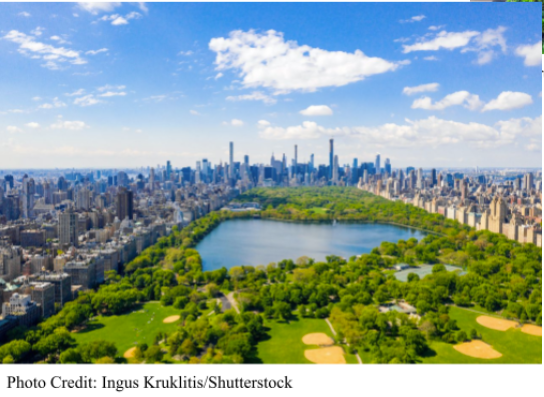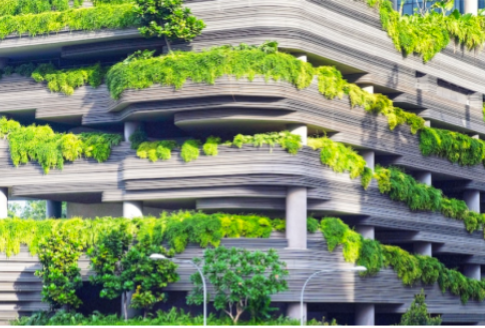Written By: Arabella Kats, Staff Writer
IMPORTANT: The lack of green spaces in cities can lead to a number of physical, mental and environmental health problems.
Big cities can be the busiest, most bustling places in the world, and many city residents seek the compact efficiency they offer. However, this desire to squeeze as much as possible into a small space often conflicts with the urban parks and green spaces that are vital contributors to clean air and serve as much-needed, communal spaces. Consequently, a lack of green space facilitates worsening air pollution and increases mental and physical health stresses among residents by encouraging a sedentary lifestyle and spurring insufficient socialization
Parks are places where people can meet, and children can play safely. They offer a break from the monotony of seeing cookie-cutter houses or buildings one after the other as well as a place to observe public art and meet new people. They are filled with plants and greenery to provide shade on hot days and help lessen the massive carbon footprint of urban areas. Researchers at the University of Illinois, in number four of the City Parks Forum Briefing Papers: How Cities Use Parks to Create Safer Neighborhoods, found that parks can relieve symptoms like “mental fatigue…, inattentiveness, irritability, and poor impulse control, each of which has been previously linked to aggression.” According to this article, there is even a potential correlation between green spaces and reduced crime in neighborhoods. Indeed, parks may be linked to increased cognitive function, lowering depression with socialization and relieving psychological stress.
Unfortunately, as more and more land becomes developed to make room for the world’s increasing population, which has now reached over eight billion people, the number of natural green spaces in populated areas is rapidly decreasing. Notable increases in global temperatures over the past years due to climate change have been facilitating exposure to extreme heat, with temperatures in some places averaging in the hundreds during the summer. This crisis has been damaging to the human brain and furthering heat stroke, dehydration and a number of other health problems, with declining green space only exacerbating them. The relentless sun exposure people receive in the concrete-and-asphalt jungles of cities can also facilitate health issues such as sunburn, increasing risks of skin cancer and eye damage from the intensity of the radiation. Planting trees and other greenery helps combat climate change and these issues, not only in the long-run but in the short term as well by providing shade and refreshing greenery. Concrete-infested Cities harbor many conditions unsafe for people to live in, and it will only get worse, until society acts on it. Promoting urban parks and greenspaces can provide a reprieve from these asphalt jungles and ultimately combat their negative health effects.


